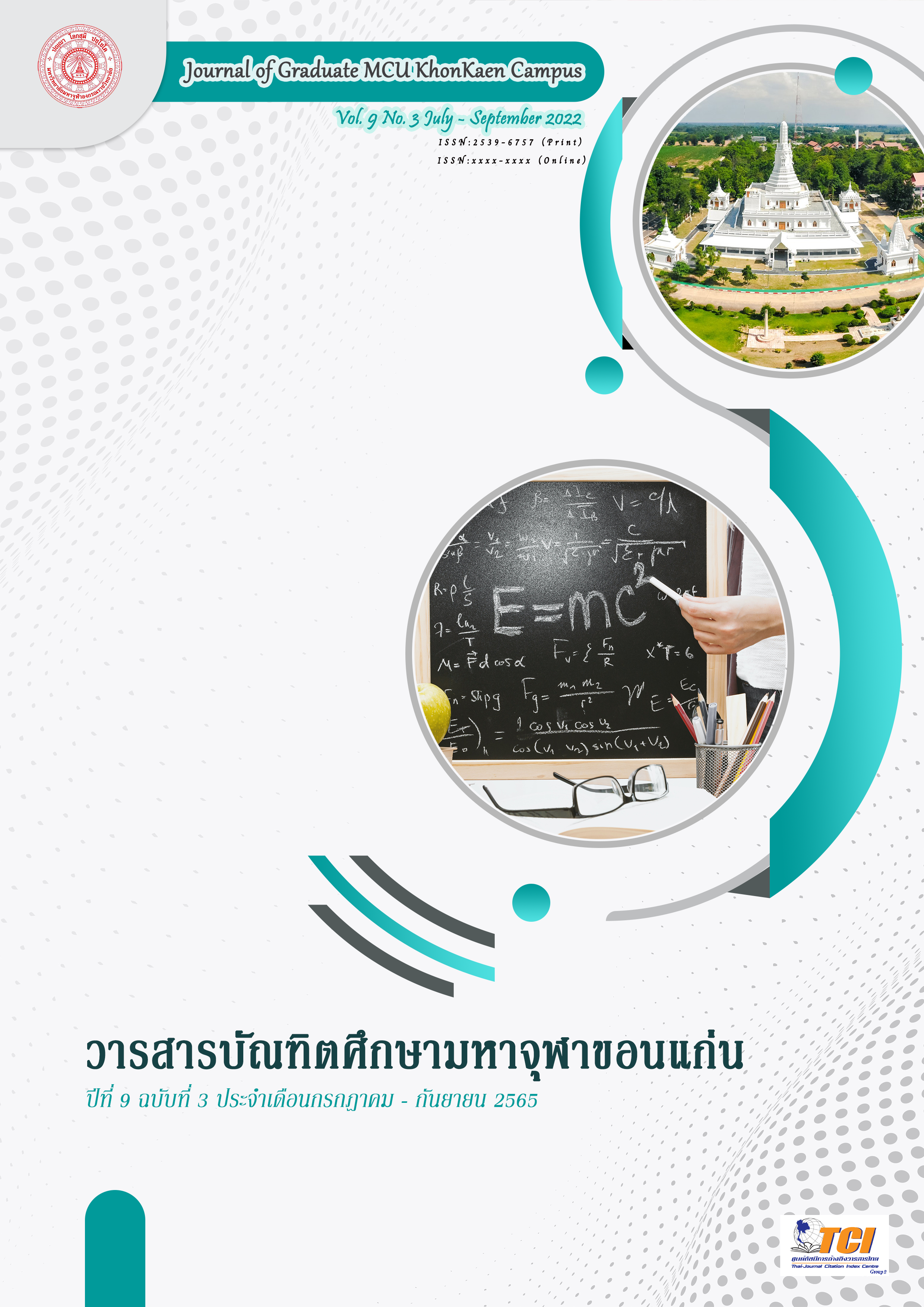The Administration Model of Entrepreneurship Vocational Educational Incubator for Professional Skills of Student from the Kamphaeng Phet Technical College under Vocational Educational Commission
Main Article Content
Abstract
The main objectives of this research to manage the model of Entrepreneurship Vocational Educational Incubator to enhance students' professional skills at Kamphaeng Phet Technical College under the Vocational Educational Commission. Conduct research in 4 steps: 1) Study management of Entrepreneurship Vocational Educational Incubator by questionnaires and interviewed. 2) Create a management model by co-working design model and check the draft model by focus group 3) Try out the model by questionnaires and assessment students' professional skills. 4) The evaluation of the constructed
model by focus group and assessment. The data were analyzed by determining the percentage, mean, standard deviation, t-test and content analysis.
The results of the research were as follows:
1. The overall average of the management of the Entrepreneurship Vocational Educational Incubator was at
a moderate level, and the management guideline found that teachers and learners should develop the potential of teachers and students to have awareness of being entrepreneur. The learning process should be developed to enhance the necessary vocational skills in the 21st century. The Entrepreneurship Vocational Educational Incubator should be developed as a learning center in educational institutions. 2. The model created has 4 main components: 1) the management of the Entrepreneurship Vocational Educational Incubator 2) the management of plans and cooperation 3) the management of educational resources and 4) the administration of academic affairs. 3. The results of the experiment using the model school administrators and the teachers' opinions after the experiment were average at a high level. Statistically significantly higher than the pre-trial mean at the 0.05 level and satisfaction with the model. Overall, it is at a high level and the learners' behaviors in terms of professional skills after the experimental model were higher than average. The mean before the trial It was statistically significant at the 0.05 level and the overall satisfaction level was at the highest level. 4. The results of the model assessment are consistent at a high level, appropriateness, feasibility and benefits at the highest level.
Article Details

This work is licensed under a Creative Commons Attribution-NonCommercial-NoDerivatives 4.0 International License.
References
กรรัตน์ พิพัฒน์ผล. (2557). องค์ประกอบความสำเร็จของการจัดการอาชีวศึกษาในสถานประกอบการขนาดใหญ่. (วิทยานิพนธ์การศึกษาดุษฎีบัณฑิต). กรุงเทพฯ: มหาวิทยาลัยศิลปากร.
เจิดฤดี ชินเวโรจน์. (2562). การพัฒนาระบบการขับเคลื่อนศูนย์บ่มเพาะผู้ประกอบการอาชีวศึกษา. วารสารวิจัยและนวัตกรรมการอาชีวศึกษา, 3(2), 40-46.
ชีวัน ทองสอดแสง และคณะ. (2560). ปัจจัยสำเร็จของหน่วยบ่มเพาะวิสาหกิจในสถาบันอุดมศึกษาของประเทศไทย. วารสารวิทยาลัยการจัดการ มหาวิทยาลัยราชภัฎเชียงราย, 7(พิเศษ), 2–10.
ประยูร อัครบวรและคณะ. (2553). การสร้างเครือข่ายและการมีส่วนร่วม (Network Building and Participatory). กรุงเทพฯ: โรงพิมพ์แห่งจุฬาลงกรณ์มหาวิทยาลัย.
มนัสนันท์ มีทรัพย์ทอง. (2563). แรงจูงใจในการปฏิบัติงานของครูสังกัดวิทยาลัยเทคนิคในภาคตะวันออก. (วิทยานิพนธ์ครุศาสตร์ดุษฎีบัณฑิต). จันทบุรี: มหาวิทยาลัยราชภัฎรำไพพรรณี.
วาโร เพ็งสวัสดิ์. (2553). การวิจัยพัฒนารูปแบบ. วารสารมหาวิทยาลัยราชภัฏสกลนคร, 2(4), 1-15.
วีระพันธ์ สิทธิพงศ์. (2541). ปรัชญาอาชีวะและเทคนิคศึกษา. กรุงเทพฯ: สถาบันเทคโนโลยีราชมงคล.
สำนักงานเลขาธิการสภาการศึกษา. (2560). แผนการศึกษาแห่งชาติ พ.ศ. 2560 – 2579. กรุงเทพฯ: สำนักงานเลขาธิการสภาการศึกษา กระทรวงศึกษาธิการ.
สำนักงานคณะกรรมการการอาชีวศึกษา. (2563). คู่มือการปฏิบัติงานศูนย์บ่มเพาะผู้ประกอบการอาชีวศึกษา. กรุงเทพฯ: สำนักงานคณะกรรมการการอาชีวศึกษา.
สำนักงานคณะกรรมการพัฒนาการเศรษฐกิจและสังคมแห่งชาติ. (2560). แผนพัฒนาเศรษฐกิจและสังคมแห่งชาติ ฉบับที่ 12 (พ.ศ.2560 - 2564). กรุงเทพฯ: สำนักงานคณะกรรมการพัฒนาการเศรษฐกิจและสังคมแห่งชาติ.
สำนักงานปลัดกระทรวงศึกษาธิการ. (2560). แผนพัฒนาการศึกษาของกระทรวงศึกษาธิการ ฉบับที่ 12 (พ.ศ.2560 – 2564). กรุงเทพฯ: สำนักงานปลัดกระทรวงศึกษาธิการ.
อนันท์ งามสะอาด. (2553). กระบวนการจัดการเรียนรู้เพื่อพัฒนาผู้เรียนอาชีวศึกษา. สืบค้นเมื่อ 16 เมษายน 2564, จาก https://sisatblog.wordpress.com
อรมณี สุนทรนนท์. (2552). ทัศนคติของผู้นำนโยบายไปสู่การปฏิบัติในกระบวนการนำนโยบายไปปฏิบัติของนโยบายการพัฒนาฝีมือแรงงาน. (รายงานวิจัย). กรุงเทพฯ: จุฬาลงกรณ์มหาวิทยาลัย.
Getzels, J.W., and others. (1968). Education administration as a social process. New York: Harper & Row.

